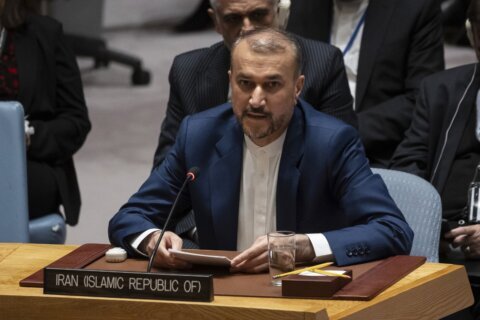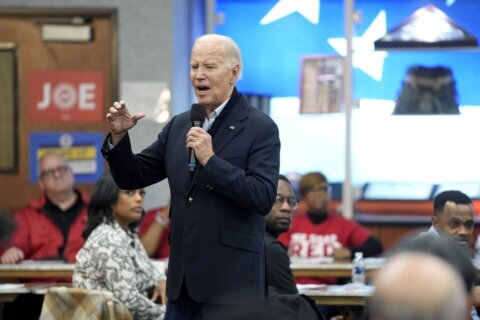BAGHDAD (AP) — The U.S. Treasury on Friday imposed sanctions on a prominent Iraqi politician and security official, accusing him of serious human rights abuses.
The Treasury said Falih al-Fayyadh stands accused of “directing and supervising the killing of peaceful Iraqi demonstrators” in 2019 and must be held accountable.
He is the chairman of the Popular Mobilization Forces, an umbrella of mostly Shiite militias, including powerful Iran-backed groups, and served as national security advisor. The umbrella group was formed in 2014 to counter the Islamic State group, following a fatwa from Iraq’s top Shiite cleric Ali al-Sistani.
There was no immediate comment from al-Fayyadh.
The growing influence of the Shiite group over Iraqi state affairs — in particular its Iran-backed elements — has alarmed U.S. officials.
Al-Fayyadh was targeted under the Magnitsky Act, passed by Congress in 2012 initially in response to the death of Russian lawyer Sergei Magnitsky, who died in prison after exposing a tax fraud scheme involving Russian officials. The law named after him was expanded and allows the U.S. to target any foreigner accused of human rights violations and corruption.
Anti-government protesters in Iraq have long accused Iran-linked militias of targeting them during mass demonstrations that began in October 2019, when thousands rallied against corruption, unemployment, poor public services and other grievances. More than 500 people were killed during the months-long protests, many of them demonstrators shot by Iraqi security forces.
The protests have since died down, due to the violent crackdown, kidnappings and targeted assassinations of activists, and also due to the coronavirus lockdowns.
Al-Fayyadh has been the head of the Shiite militias during this time and continues to hold the post. Though Iran-backed groups functioning under the umbrella stand accused by activists and the U.S., no official investigation has ever been conducted to identify the perpetrators of the killings of protesters.
It is also unclear how much influence al-Fayyadh had over the operations of individual militia groups, leading some Iraqi officials to speculate over the political implications of the latest sanctions.
Al-Fayyadh’s deputy, powerful militia leader Abu Mahdi al-Muhandis, was considered far more influential over activities of Iran-backed groups in Iraq. Al-Muhandis was killed in a Washington-directed drone strike last year that targeted and killed top Iranian general Qassim Soleimani outside the Baghdad airport.
Copyright © 2024 The Associated Press. All rights reserved. This material may not be published, broadcast, written or redistributed.







